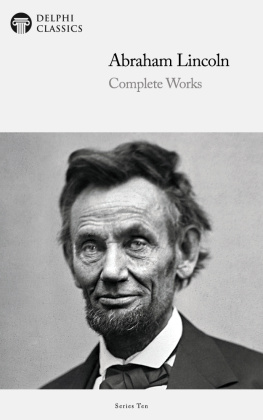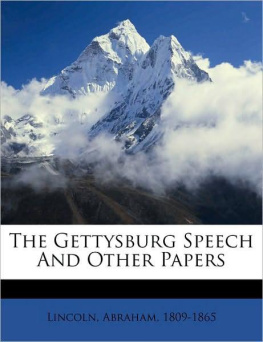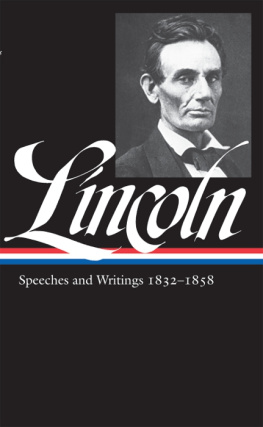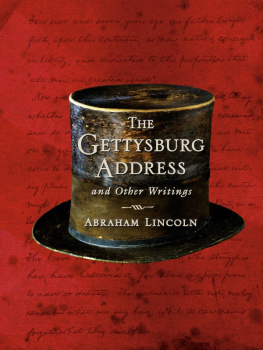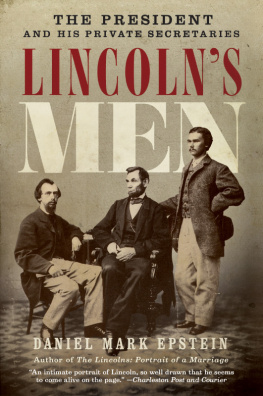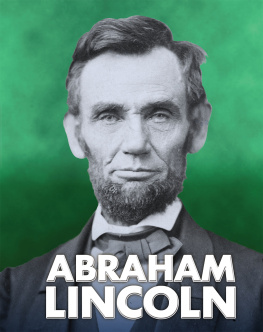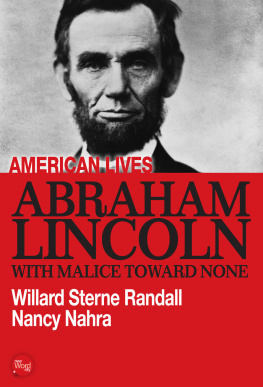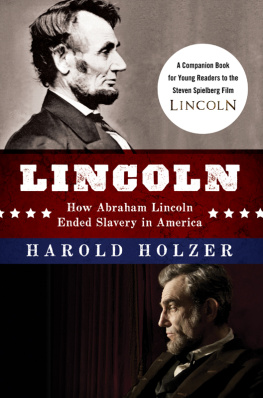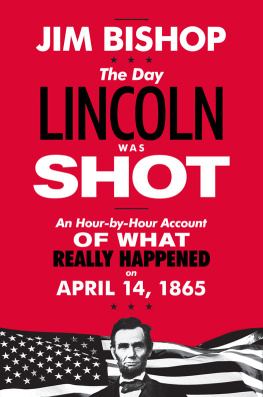
The Complete Works of
ABRAHAM LINCOLN
(1809-1865)

Contents

Delphi Classics 2019
Version 1


Browse our Main Series

Browse our Ancient Classics

Browse our Poets

Browse our Art eBooks

Browse our Classical Music series

The Complete Works of
ABRAHAM LINCOLN

By Delphi Classics, 2019
COPYRIGHT
Complete Works of Abraham Lincoln

First published in the United Kingdom in 2019 by Delphi Classics.
Delphi Classics, 2019.
All rights reserved. No part of this publication may be reproduced, stored in a retrieval system, or transmitted, in any form or by any means, without the prior permission in writing of the publisher, nor be otherwise circulated in any form other than that in which it is published.
ISBN: 978 1 78877 960 9
Delphi Classics
is an imprint of
Delphi Publishing Ltd
Hastings, East Sussex
United Kingdom
Contact: sales@delphiclassics.com

www.delphiclassics.com
The Papers and Writings of Abraham Lincoln

Abraham Lincoln was born on 12 February 12, 1809 in a one-room log cabin on Sinking Spring Farm, near Hodgenville, Kentucky. This Beaux-Arts neo-classical Memorial Building was built on the birthplace site and the cornerstone was laid by Theodore Roosevelt in 1909.

Drawing of the log cabin in which Lincoln was born The New Students Reference Work, 1914

Almost a hundred years after Lincoln moved from Sinking Spring Farm, a similar log cabin was placed inside the Memorial Building.

Lincolns father, Thomas Lincoln (1778-1851) was a farmer and carpenter. He could not write, but he was a well-respected community and church member known for his honesty.

Hodgenville, a city in LaRue County, Kentucky
Volume 1: 1832-1843

CONSTITUTIONAL EDITION
Edited by Arthur Brooks Lapsley
CONTENTS

Joshua F. Speed (1814-1882) was a close friend of Lincoln from his days in Springfield, where Speed was a partner in a general store. Later, Speed was a farmer and a real estate investor in Kentucky, and also served one term in the Kentucky House of Representatives in 1848. Lincoln and Speed frequently corresponded with each other.
INTRODUCTORY

I MMEDIATELY AFTER L INCOLN S re-election to the Presidency, in an off-hand speech, delivered in response to a serenade by some of his admirers on the evening of November 10, 1864, he spoke as follows:
It has long been a grave question whether any government not too strong for the liberties of its people can be strong enough to maintain its existence in great emergencies. On this point, the present rebellion brought our republic to a severe test, and the Presidential election, occurring in regular course during the rebellion, added not a little to the strain.... The strife of the election is but human nature practically applied to the facts in the case. What has occurred in this case must ever occur in similar cases. Human nature will not change. In any future great national trial, compared with the men of this, we shall have as weak and as strong, as silly and as wise, as bad and as good. Let us therefore study the incidents in this as philosophy to learn wisdom from and none of them as wrongs to be avenged.... Now that the election is over, may not all having a common interest reunite in a common fort to save our common country? For my own part, I have striven and shall strive to avoid placing any obstacle in the way. So long as I have been here, I have not willingly planted a thorn in any mans bosom. While I am deeply sensible to the high compliment of a re-election and duly grateful, as I trust, to Almighty God for having directed my countrymen to a right conclusion, as I think for their own good, it adds nothing to my satisfaction that any other man may be disappointed or pained by the result.
This speech has not attracted much general attention, yet it is in a peculiar degree both illustrative and typical of the great statesman who made it, alike in its strong common-sense and in its lofty standard of morality. Lincolns life, Lincolns deeds and words, are not only of consuming interest to the historian, but should be intimately known to every man engaged in the hard practical work of American political life. It is difficult to overstate how much it means to a nation to have as the two foremost figures in its history men like Washington and Lincoln. It is good for every man in any way concerned in public life to feel that the highest ambition any American can possibly have will be gratified just in proportion as he raises himself toward the standards set by these two men.
Next page
